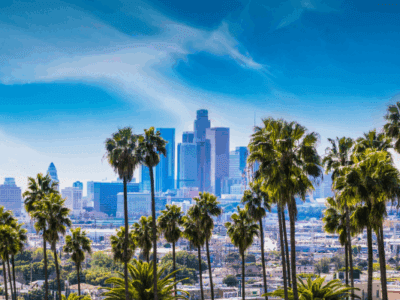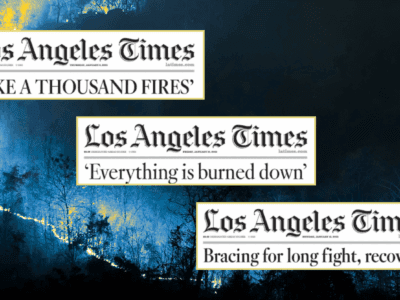Attack of the Killer Blob
A weird patch of warm weather is killing sea lions and poisoning crabs.
There’s a weird area of warm water, which has come to be known as the Blob, sitting offshore of the West Coast. That doesn’t sound too significant, except perhaps in terms of making things more pleasant for swimmers. But actually, it’s causing a whole cascade of impacts on wildlife and humans.
As the Chronicle explains:
“The waters off the West Coast are hovering at as much as 6 degrees warmer than normal. The anomaly began a couple of years ago when the wall of atmospheric pressure over the Pacific that blocked storms from hitting California — and kicked off the drought — also kept cold, stormy air from stirring the ocean and moderating water temperatures.”
Warm water, so what? It’s not the warmth of the water but the effect on wildlife that’s notable. The warmer water is causing big blooms of algae that produce a dangerous neurotoxin. The neurotoxin than works its way up the food chain, harming fish and then killing the sea lions that eat the fish. For example, in May, eighty sea lions washed on shore vomiting and having seizures. The toxin is also absorbed by crabs. As a result, California has halted the crab season indefinitely. No “Crab Feed” this year at the church around the corner from us, I guess.
The warmer water is also attracting whales that don’t normally come up this far north, and even some poisonous sea snakes that are normally found by Mexico. It’s hard to know what the ripple effects of all this will be. All of this is pretty much unprecedented:
““It’s like looking out your office window and watching a flamingo walk by,” said Bill Peterson, a senior scientist with the National Marine Fisheries Service in Newport, Ore. “We’re seeing stuff we never would have guessed we’d see.”
Is this due to climate change? Nobody really knows. It is, however, similar to the kinds of disruptions in established patterns that we can expect climate change to produce. We’re on the path to an uncharted world, both in the ocean and on land. There’s no way of being sure of exactly what’s next as the atmosphere, the oceans, and the biosphere are impacted by a warming world..
Reader Comments
3 Replies to “Attack of the Killer Blob”
Comments are closed.







Exactly, we don’t really know. We have computer models and simulations of the future to make us feel better. We would like to think there will be winners and losers and that we can take actions to be make sure we’re economic winners. But the truth is we are in dangerous, uncharted territory where everyone is a loser in some way and we don’t really know what will happen.
Dan, what scientists do keep proving beyond all doubt is that we most desperately need another Manhattan Project to deal with Global Warming today.
Can Janet Napolitano’s call on UC “scientists to embrace the role of public intellectual” make the right things happen at last, to overcome the increasingly out of control threats we are already experiencing from global warming with the required sense of urgency?
http://universityofcalifornia.edu/news/napolitano-calls-scientists-advocate-science
Or have you scholars just been kidding us all along as another academic exercise?
Dan, this is incredible proof that the California education system doesn’t even believe UC experts like you and Legal Planet. Why don’t they even believe UC? UC has a major credibility problem!
SCIENCE DAILY
California 6th grade science books: Climate change a matter of opinion not scientific fact
Textbooks from different major publishers give climate deniers equal weight as vast majority of climate scientists who cite scientific evidence of human-caused global warming
Date:
November 10, 2015
Source:
Southern Methodist University
Summary:
A new study that analyzed four California science textbooks from major publishers found they position climate change as a debate over differing opinions. Contrary to the clear majority of climate scientists who cite scientific data and evidence of human-caused climate change, the textbooks present the topic as uncertain, that humans may or may not cause it, and that its unclear if we need immediate mitigating action, the researchers found.